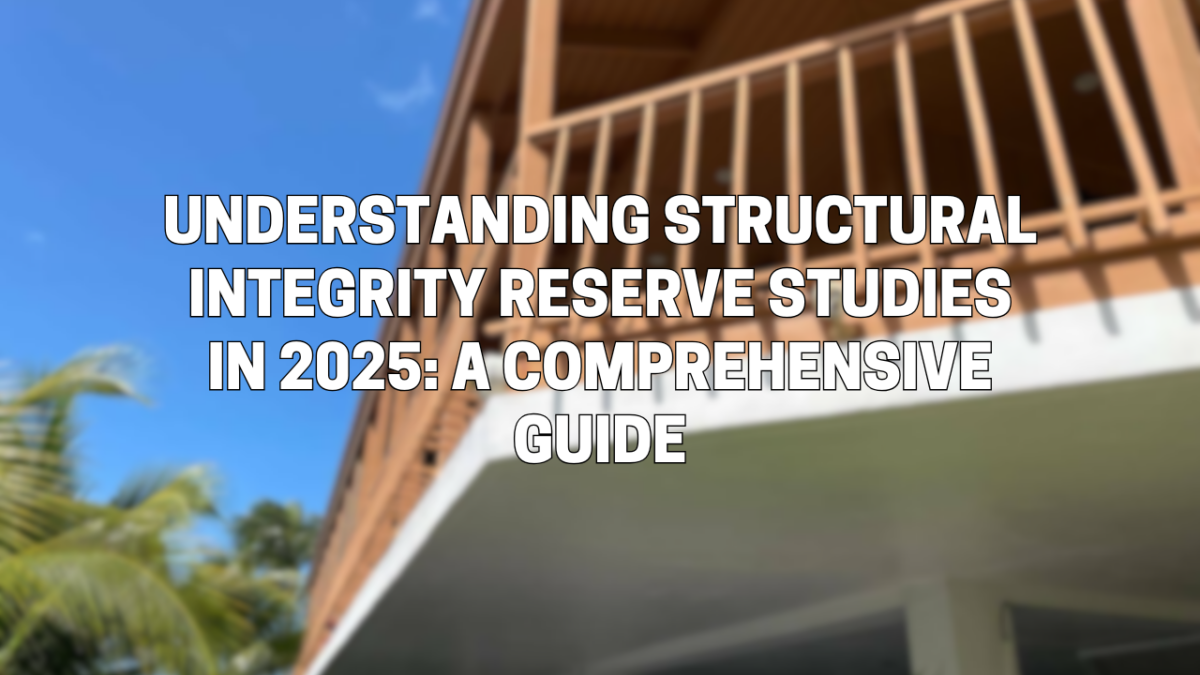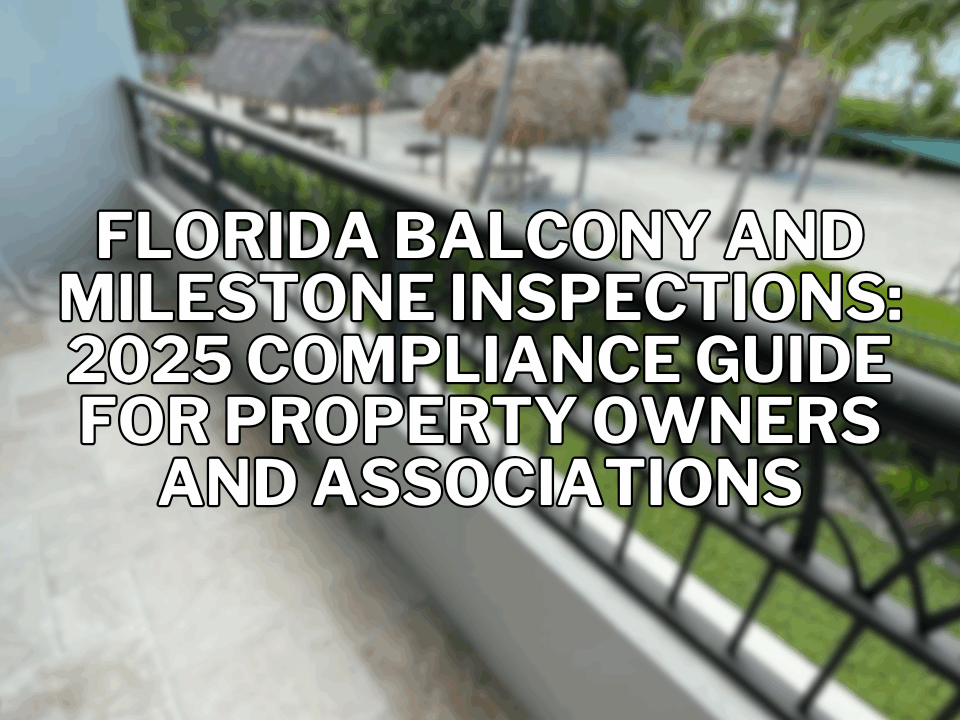Structural Integrity Reserve Studies (SIRS) have gained prominence due to increased awareness of building safety and preventive maintenance. Recent legislative updates emphasize their critical role in safeguarding property investments and ensuring public safety. This article delves into SIRS, their requirements, and their implications for property associations and developers.
Table of Contents
- What Are Structural Integrity Reserve Studies?
- Key Legislative Updates
- Mandatory Milestone Inspections
- Implications for Developers and Associations
- Best Practices for Compliance
1. What Are Structural Integrity Reserve Studies?
SIRS are assessments that determine the reserve funds needed for major repairs and replacements of critical building components. Conducted every 10 years, these studies include a visual inspection by licensed engineers or architects, focusing on areas like:
- Roofs
- Load-bearing walls
- Foundations
- Electrical and plumbing systems
- Waterproofing and fire protection systems.
2. Key Legislative Updates
The Florida Senate’s SB 4-D and subsequent amendments mandate SIRS for buildings three stories or taller. Here are the highlights:
- Frequency: Every 10 years for buildings reaching 30 years of age or 25 years if near coastal zones.
- Effective Date: All existing associations must complete their SIRS by December 31, 2024.
- Scope: Studies must estimate remaining useful life and replacement costs for structural components.
Failure to comply is considered a breach of fiduciary duty by association officers and directors.
3. Mandatory Milestone Inspections
Milestone inspections, legislated under Florida Statutes 553.899, are a two-phase process:
- Phase One: Visual inspection to identify structural issues.
- Phase Two: Detailed testing if structural deterioration is suspected.
These inspections aim to preempt catastrophic failures like the Surfside condominium collapse, which highlighted deficiencies in maintenance and structural oversight.
4. Implications for Developers and Associations
- Pre-Turnover Requirements: Developers must conduct SIRS before transferring control to unit owners.
- Budgeting and Reserves: Associations must allocate sufficient funds based on SIRS recommendations. Waiving or reducing reserves is no longer permissible for listed critical components without a majority vote.
- Enforcement and Penalties: Local agencies monitor compliance, with penalties for delays or negligence.
5. Best Practices for Compliance
- Timely Scheduling: Engage qualified professionals early to meet deadlines.
- Detailed Documentation: Maintain updated records of inspections and reserve allocations.
- Regular Maintenance: Address minor issues proactively to extend the lifespan of structural components.
- Stakeholder Education: Inform residents about the importance of SIRS and their role in funding reserves.
- Consult Legal Counsel: Navigate compliance complexities with expert legal guidance.
The heightened focus on Structural Integrity Reserve Studies underscores the importance of preventive maintenance and transparent financial planning. For property associations and developers, adhering to these requirements is not just about compliance—it’s about ensuring the safety and sustainability of community assets.
The Structural Integrity Reserve Study Experts – Florida’s Condominium Inspections
- Phone: 941-391-5980
- Email: contact@fleng.com
- Address: 4161 Tamiami Trail, Suite 101, Port Charlotte, FL 33952
Connect With Us
Related Services
- Milestone Inspections
- Energy Calculation Services
- 25,30,40,50,60 Year Recertifications
- Pool Engineering Services
- Turnover Inspections
[This above text is for information purposes only and does not constitute engineering or legal advice. Please consult a professional engineer and licensed attorney for any specific answers to your questions about Structural Integrity Reserve Studies and the legal obligations Structural Integrity Reserve Studies entail.]







